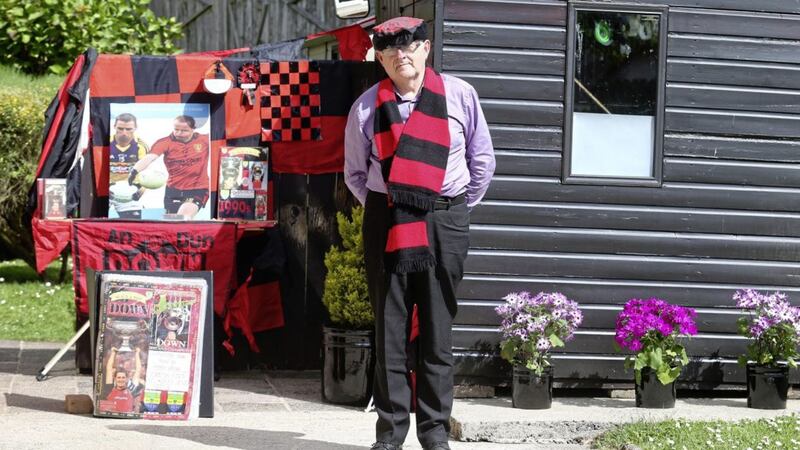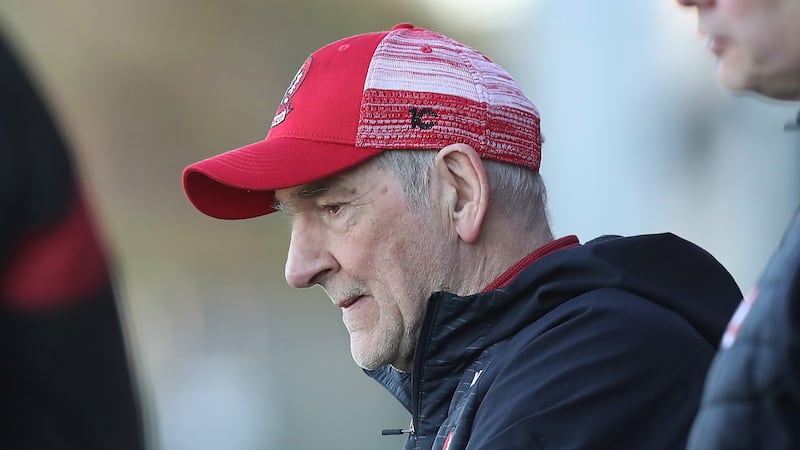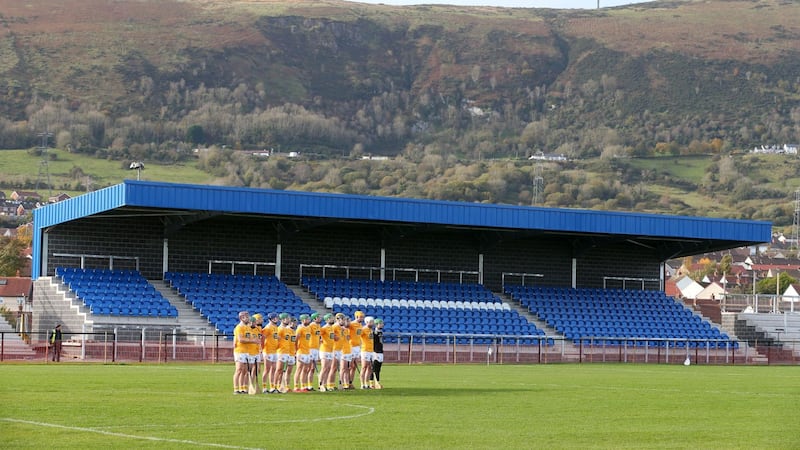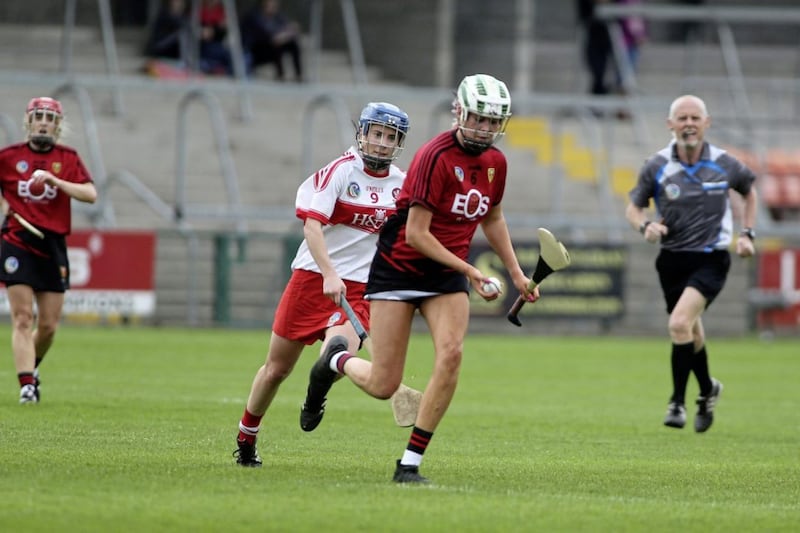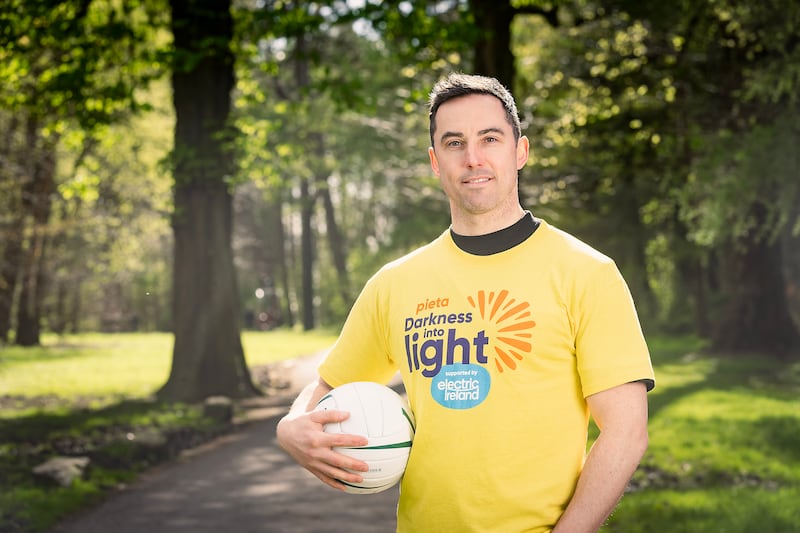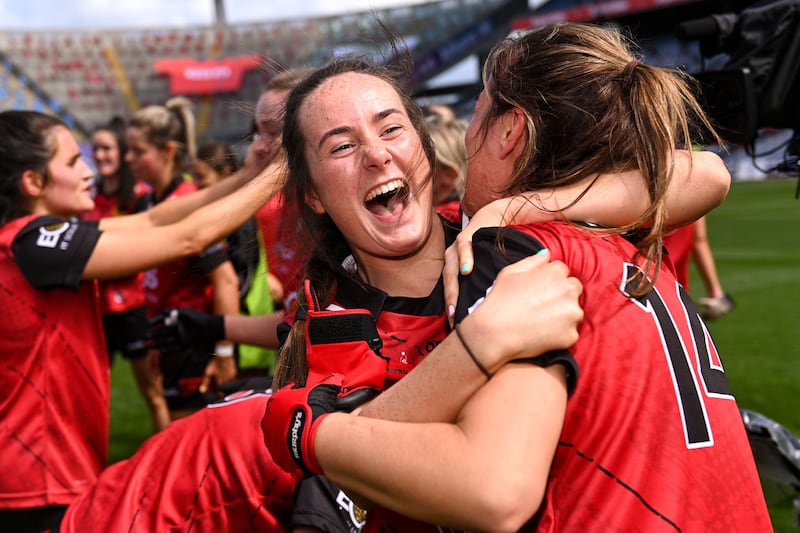TRYING to steer Seamus McClean down the one road can sometimes feel a bit like throwing a lasso at an ant. You think you have him - you’re sure you do – then, like a flash, he’s away.
His head, like parts of his Castlewellan home, is crammed full of red and black. There’s so much information and so many priceless memories from 60 years on the road that it is almost impossible not to veer off into unexpected and unsolicited terrain.
A Down devotee and chairman of the Down GAA Supporters’ Club (“the longest running continuous supporters’ club in Ireland - we’ve checked it out”) McClean has been one of the few constants, through the good days and the bad for the Mournemen. No matter whether it’s Wicklow in winter or Sligo in summer, he’ll be there.
Seamus turns 70 today, and had hoped to be looking forward to an Ulster semi-final against Monaghan, Cavan or Antrim if Down had got past Fermanagh last week. Instead, though, the Covid-19 crisis has ground the wheels of the wagon to a halt.
He hasn’t gone this long without watching Down in action since his earliest days. Indeed, only when you query how many games he has missed through the years is there a second’s pause on the other end of the line.
“Hmm,” begins the reply after careful deliberation, “there wouldn’t have been too many. An odd time with work… I work at King’s Inn in the town, so if there was something major on, a Fleadh Cheoil or something, that’s the only times I can think of.
“But there would’ve been very few.”
His love affair with the county team actually began in the kitchen of the family home in Liatroim, a few miles into the Mournes outside of Castlewellan.
It was there he sat yards from the wireless radio, listening intently as the legendary Michael O’Hehir heralded the beginning of an historic era for Ulster as Down conquered all before them in 1960 and ’61, becoming the first county to bring Sam Maguire over the border.
“The family weren’t into football in a big way. I’ve four brothers and none of them played. I only played at school, though out in the garden I thought I was going to be the next Sean O’Neill or Paddy Doherty.
“My late father would’ve listened on the radio the odd time, the games were brought alive by Michael O’Hehir, and you were just praying the battery wouldn’t go flat before the end.
“That’s where it all started for me. I was 10 in 1960 - not a bad time to start following Down.”
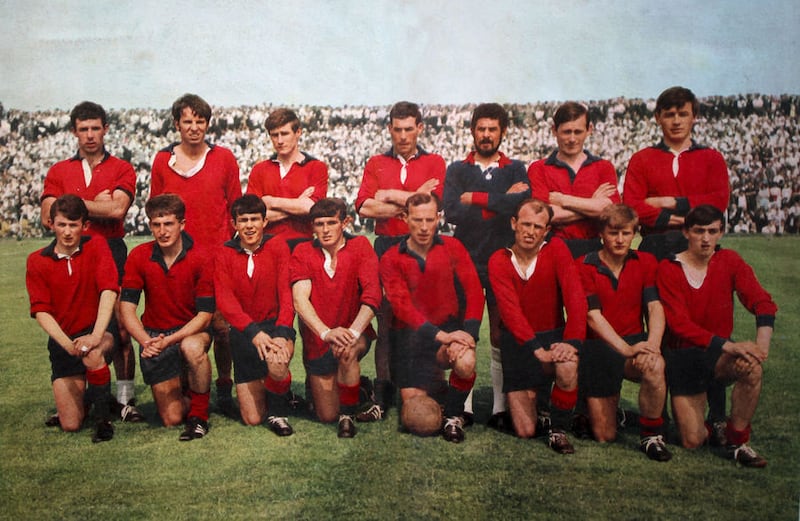
It was in the latter part of the decade, though, that his interest swelled from pastime to a passion like no other.
“We travelled over 2,000 miles to see Down win all before them in 1968 – we went everywhere in the green Ford Anglia of my work colleague TJ King, along with Bertie Charles, Kevin Kelly and Tommy McCormack, who were all from the Newcastle area.
“In the National League, we travelled to Casement Park to play Antrim, Navan to play Meath and Croke Park to play Dublin. In the League quarter final we travelled back to Croke Park to play Meath again, then Galway in the semi-final and Kildare in the National League final.
“In the Championship we went to Ballinascreen to face Derry, then it was off to Breffni Park to play Donegal and finally to Clones where we faced Cavan in the Ulster final. After winning Ulster Down met Galway in the All-Ireland semi-final and Kerry in the final.
“That year just seemed to get better as it went along.”
The 1968 decider was the first All-Ireland final Seamus McClean had been to. Still now he can remember the sights and smells of an unforgettable occasion.
But what also stays with him is a fairly untypical break with the familiar cuteness of their Kingdom counterparts.
“All these so-called experts were saying at the start of the year that Down would win nothing because they had too many kids in the team and old men as well… I actually have an article in one of the scrapbooks in the house leading up to the ’68 final where one of the Kerry trainers described Sean O’Neill as overrated and Paddy Doherty as over the hill.
“That’s what he said - talk about motivation. Between the two of them they hit 1-7 on All-Ireland final day, so there you are. How wrong he was.”
The journey didn’t end there in 1968 either. After lifting Sam, Down played Leinster champions Longford in the Grounds Tournament before losing out to Australia in a Croke Park friendly.
These road trips, like all the rest undertaken that year, were not for the faint-hearted. Far from the motorways that deliver you to the door of most places with little fuss, no highway or byway was out of bounds when this intrepid group of friends set off.
“The journeys were long, but at that time you never passed any remarks. That’s just the way it was.
“You had to go through Dundalk, Drogheda, Balbriggan and Swords to get to Dublin. You’d be heading to the match through all these wee towns hoping to avoid the Mass traffic on the way. People just abandoned their vehicles, so you could be sitting in traffic jams for ages. I saw days where it took us three-and-a-half hours to get from Castlewellan to Dublin.
“On the journey home, most of the Down supporters would’ve stopped in Dundalk for a meal – it was like a red and black invasion. Everywhere would’ve been bunged so you’d have been queuing out on the street until a table became available; there wouldn’t have been much social distancing. Then somebody would order a steak and you’d be waiting there all night.
“Even though you were starving you didn’t mind because the craic was always great, especially if we’d won.”
There were no All-Irelands to celebrate in ’70s and ’80s, but still Seamus and co pitched up in every far flung corner of the country, even in the midst of the Troubles.
“We still kept going on,” he says, “though the saddest day I can remember was the day after the Loughinisland massacre when Down were playing Monaghan in the 1994 Ulster semi-final.
“Gary Mason from Loughinisland was playing, young Ciaran McCabe’s mother was from Loughinisland… it was the most low-key match I can remember. No excitement, no cheering, no nothing.
“Everybody’s minds were just elsewhere.”
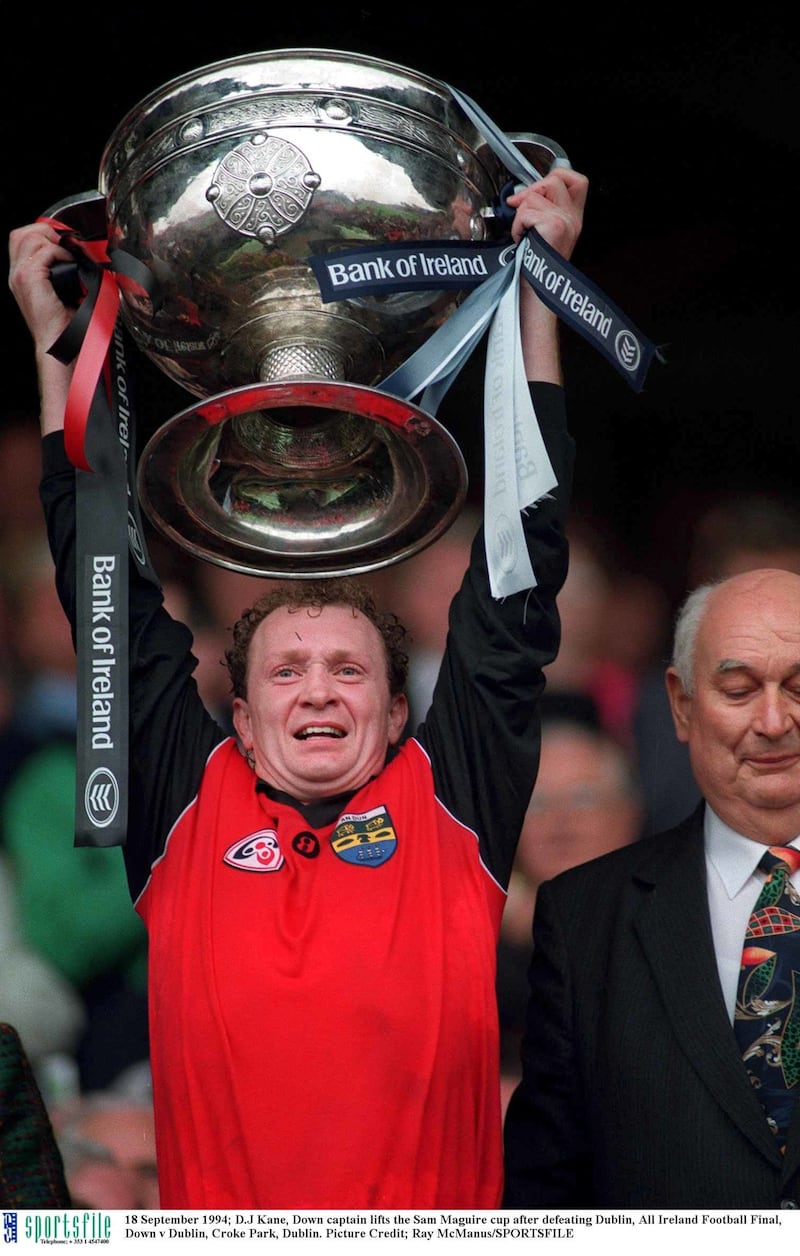
By the time the 1990s arrived, the Down Supporters’ Club – formerly the Down Supporters’ Association before an enforced change due to some Croke Park red tape in 1985 – was packing buses and trains to anywhere and everywhere.
A new decade would herald another glorious period for the county, with Pete McGrath’s men reaching the summit in 1991 and ’94. Those days feel like an increasingly distant memory now, as the search for success in the Mourne County lingers on.
As ever, though, McClean remains optimistic that the good times may not be too far away again.
“When your team’s on the crest of a wave, you could fill a train or buses in no time at all.
“People that don’t bother much with football, you’ll always find that in the lead up to an Ulster final, if they meet you they’re always talking about football. You do think to yourself sometimes ‘sure you never mentioned football in your life to me before and you’re talking now as if you know who’s going to do what’.
“But when you’re heading for the wooden spoon, it’s only the hardcore fans that’ll turn up for all these matches. This year we had three away matches to Tipperary, Cork and Offaly, the fourth one in Louth hasn’t been played, but we did the overnight stays and there was a full bus.
“This is the bit that’s annoying me – will they scrap the whole thing and start again? Down have one foot in Division Two and you wouldn’t want to lose that. If you start again from scratch next year sure there’s no guarantee you’d get promoted. They had a lot of the hard work done this year, and there were good signs of progress.
“Down always seem to start a decade strong, I don’t know why it is, so you’d be hopeful. They’re always bright-eyed and bushy tailed in those first few years. Look at the start of the ’60s, 1971 we won Ulster, 1981 we won Ulster, 1991 we won the All-Ireland, in 2010 okay we didn’t win anything but we got to an All-Ireland final.
“Now, looking into a new decade, we’ve new lads likes Daniel and James Guinness, Eoin McCabe, Liam Kerr’s an outstanding player. The future looks bright.”
As it stands, it’s 26 years since Down last lifted the Anglo-Celt Cup. They may yet get the chance to end that barren run if the Championship is given the green light later in the year, though whether supporters are allowed into Brewster Park for that delayed Ulster opener remains to be seen.
If they are, though, Seamus McClean will be the first man on the bus.
“I’m turning 70 here and when you listen to the news, it seems that if you’re 70 you should be locked up or locked down, whatever it is. It’s been a very strange time, and you just can’t wait to get back to some sort of normality, and back to football.
“If Boris lets me out, I’ll be there.”
